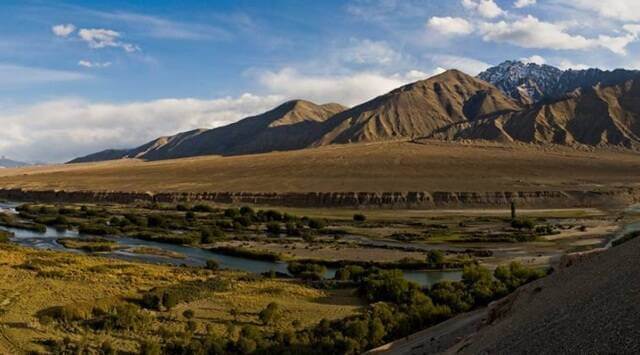Introduction
India and Pakistan have had a long-standing dispute over the sharing of the Indus river waters, which dates back to the partition of India in 1947. The Indus Waters Treaty (IWT) was signed in 1960 under the auspices of the World Bank, which allocated the three eastern rivers (Sutlej, Beas, and Ravi) to India and the three western rivers (Indus, Jhelum, and Chenab) to Pakistan. However, the IWT has been a subject of contention between the two countries, with both sides accusing each other of violating its provisions. In recent years, India has been exploring the possibility of modifying the IWT to address its concerns over the effective utilization of its share of the waters. This article takes a closer look at the India takes stock of Indus Waters Treaty modification process.
Background
The primary bone of contention between India and Pakistan over the IWT is the limited scope of the treaty, which primarily deals with the allocation of river waters and does not address the issues of water quality, environmental sustainability, or climate change. Moreover, India has been facing challenges in the optimal utilization of its share of the waters, as Pakistan has been opposing the construction of dams and other hydroelectric projects on the western rivers, citing the provisions of the IWT. As a result, India has been exploring the possibility of modifying the IWT to enable the construction of such projects without violating its provisions.
Implications
The modification of the IWT has significant implications for both India and Pakistan, as it involves the re-negotiation of the treaty provisions and the allocation of river waters. The following are some of the key implications of the India takes stock of Indus Waters Treaty modification process:
The modification of the IWT could lead to a significant increase in the utilization of the river waters by India, which could have adverse impacts on the downstream areas in Pakistan. This could result in a further deterioration of the already strained relations between the two countries.
The modification of the IWT could enable the construction of dams and other hydroelectric projects on the western rivers, which could provide a much-needed boost to India’s energy security and help meet its growing demand for electricity.
The modification of the IWT could open up new opportunities for cooperation and dialogue between India and Pakistan on the issues of water quality, environmental sustainability, and climate change. This could help build trust and confidence between the two countries and contribute to the broader objective of regional stability and security.
Future Prospects
The India takes stock of Indus Waters Treaty modification process is still in its early stages, and it remains to be seen how it will unfold in the coming months and years. However, there are some key factors that are likely to shape its future prospects:
The role of the World Bank: The World Bank played a crucial role in the negotiation and signing of the IWT in 1960, and it is likely to play a key role in the modification process as well. India and Pakistan have already held several rounds of talks with the World Bank as the mediator, and its role in facilitating a consensus between the two countries will be critical.
The political will of the two countries: The successful modification of the IWT will require a high degree of political will and commitment from both India and Pakistan. The process could face significant challenges if either of the countries is not willing to make the necessary compromises and concessions.
The impact of the global water crisis: The impact of the global water crisis: The global water crisis has emerged as a critical issue in recent years, with many countries facing acute water scarcity and stress. The modification of the IWT will need to take into account the broader implications of the water crisis and the need for sustainable and equitable utilization of water resources. India and Pakistan will need to work together to ensure that the modified treaty promotes the principles of water conservation and management.
Conclusion
The India takes stock of Indus Waters Treaty modification process is a critical issue that has significant implications for India, Pakistan, and the broader South Asian region. While the process is still in its early stages, it presents an opportunity for both countries to address their concerns over the effective utilization of the Indus river waters and explore new avenues for cooperation and dialogue. The successful modification of the IWT will require a high degree of political will and commitment from both India and Pakistan, and the broader principles of water conservation and management must be at the forefront of any negotiations. As the global water crisis continues to intensify, the need for sustainable and equitable utilization of water resources has never been more critical, and the modification of the IWT presents an opportunity to take a step in the right direction.
FAQs
Q: What are India’s main concerns over the IWT? A: India’s main concerns over the IWT are related to the limited scope of the treaty and the restrictions it imposes on the construction of dams and hydroelectric projects on the western rivers.
Q: Why is Pakistan opposed to the construction of dams and hydroelectric projects on the western rivers? A: Pakistan is opposed to the construction of dams and hydroelectric projects on the western rivers as it believes that it will affect the flow of water downstream and harm its agricultural sector.
Q: What is the role of the World Bank in the modification process of the IWT? A: The World Bank is playing the role of a mediator in the modification process of the IWT and is facilitating the negotiations between India and Pakistan.
Read more about: The HDFC Bank has stated that there will be continued near-term volatility as the timeline for the merger gets delayed.










